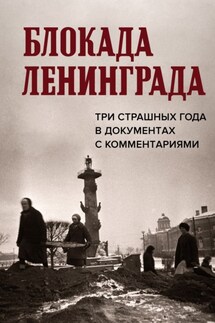Solar Wind. Book one - страница 35
“This is Varkoheba, great Caesar,” said Julius Severus, his voice sounding blankly under the arches of the cave.
The wind blew from behind, shadows swirling from the flame of torches.
“Who goes there?” Hadrian asked, but there was no answer.
Pushing the crowd, a tall centurion from the Fifth Macedonian Legion stepped forward. He led behind him a frail, ragged old man with gray side curls and a disheveled beard. His hands were tied with a leather belt, which usually belted the tunic.
“Caesar, I have ordered to bring Akiva, a priest of the Jews. We've already talked about it,” Matenianus explained.
“Oh, yes, this rebel!”
The Emperor looked curiously at the face of a man exhausted by the long siege stained with mud and soot, and stingingly asked:
“What old man, your god, your Yahweh, has not helped you?”
But Akiva did not answer, he looked down under his feet, and his lips moved as if uttering the words of prayer. Or maybe he prayed to his god, whose name Jews could not say out loud. But Hadrian could speak because he was not a Jew.
Having lost interest in Akiva, Hadrian returned to the murdered Varkoheba. Looking closely, he saw something unusual on the rebel's body, where the neck was supposed to be, something was moving, it seemed that the dead man's shoulders were rising, as if the leader of the rebels had not yet died, and just put his head to the body as it comes to life. For a moment, Hadrian was terrified.
“Fire here!” he shouted.
The legionnaire ran up with a torch, and now everyone saw that the shoulders of Varkoheba were enveloped by a large viper, as light yellow, in dark spots, as the surrounding walls and stones under their feet.
“Look!” Severus exclaimed. “He is the messenger of their god. The Jewish god himself killed him, punishing him for deceit and treachery.”
The old man muttered something barely audible.
“What are you saying?” Hadrian turned to him and said, “Translate someone.”
One of the Syrians who guarding the emperor reported, “He says that God did not kill Varcoheba, he came for his soul, as a righteous man's soul, to place it in the treasury of the throne of glory.”
Hadrian frowned.
“Does God want to take this man’s soul to heaven? Then chop off the head of this snake! Rufus,” he found with his eyes among the retinue the figure of the viceroy, “Rufus, come here! You trust the great honor of defeating the messenger of the Jewish god.”
Before Rufus immediately parted, and he had to come forward. Near Varcoheba’s body, the governor stopped, hesitantly drew a sword from its scabbard, and began fussily poking at the head of the viper. The snake hissed menacingly, sliding from the body of the murdered, but the governor still could not get into her small flat head with a forked tongue. It seemed that horror shackled him, it was one thing to anger your gods, whom you can cajole by making a rich sacrifice to them, and another thing was a stranger, an unknown god. He, Tineius Rufus, did not know what sacrifices this Yahweh received. And would he accept from him?
“How long are you going to practice, Quintus? We're tired,” sneered Hadrian, who was amused by the squirming figure of the viceroy standing on half-bent legs.
The old man again muttered something in a stubborn, loud voice, and without waiting for the emperor's question, the Syrian translated it.






